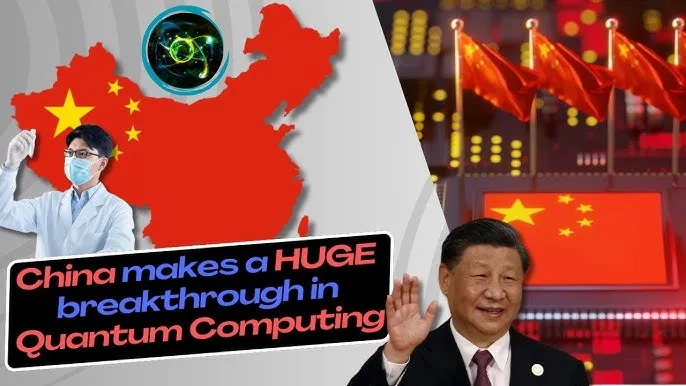Quantum Dreams: China’s Bid for Computing Supremacy

Startups and labs push forward quantum breakthroughs that could upend cybersecurity and global trade.
The Quantum Stakes
For China, quantum computing is more than an academic pursuit it is a national priority tied to economic competitiveness, cybersecurity, and military advantage. Beijing has declared quantum technology a strategic frontier, placing it alongside AI, semiconductors, and space exploration as a field critical to national security.
Over the past decade, China has poured billions into quantum research, establishing national labs in Hefei and Beijing and funding dozens of university and startup projects. The goal: to achieve breakthroughs that could leapfrog Western rivals and cement China as a global leader in the post-digital era.
Quantum Computing Progress
China’s scientists have already achieved several milestones. In 2020, the University of Science and Technology of China (USTC) announced Jiuzhang, a photonic quantum computer that outperformed classical supercomputers on certain calculations. Later, its superconducting system “Zuchongzhi” demonstrated advances in quantum supremacy experiments, signaling China’s capacity to compete with U.S. labs like Google’s Sycamore and IBM’s Quantum systems.
The next frontier is scalability. Chinese startups are racing to expand from systems with dozens of qubits to fault-tolerant architectures with thousands, capable of solving real-world problems in chemistry, logistics, and finance.
Strategic Applications
Why the urgency? Because quantum computing threatens to upend today’s digital order:
- Cryptography: A sufficiently powerful quantum machine could break classical encryption, disrupting banking and defense.
- Drug Discovery: Quantum simulations promise breakthroughs in designing new materials and medicines.
- Logistics Optimization: From supply chains to urban planning, quantum models could reduce costs and improve efficiency at unprecedented levels.
For Beijing, controlling these capabilities is about both economic opportunity and strategic deterrence.
Global Competition
The U.S., EU, and Japan are all investing heavily in quantum research. Washington’s National Quantum Initiative has mobilized billions, while European consortia are building cross-border programs.
China’s advantage lies in its state-backed funding and centralized coordination, which allow rapid scaling of projects. Its challenge, however, is retaining top talent: U.S. and European firms remain magnets for Chinese quantum researchers, prompting Beijing to expand incentives to keep them at home.
Commercialization Efforts
Quantum computing is not just about labs it is about commercialization. Chinese startups are emerging in quantum cloud services, allowing companies to experiment with algorithms remotely, even without owning quantum hardware.
Telecom operators are also integrating quantum key distribution (QKD) into pilot networks, particularly in government and financial sectors. This creates an ecosystem where quantum security tools are already being tested in real-world environments, even before fully practical quantum computers arrive.
Subtle Links to Finance
Quantum’s disruptive potential is especially acute in finance. Banks and fintech firms in Shanghai and Shenzhen are exploring quantum algorithms for risk modeling, portfolio optimization, and fraud detection.
Some experimental settlement platforms are even testing quantum-safe encryption for cross-border payments. These projects hint at a future where next-gen digital rails, whether tied to CBDCs or compliant blockchain tokens, are secured against quantum-level threats. It is a reminder that finance and technology are increasingly converging often beneath the radar of public attention.
The Road Ahead
Despite progress, real-world quantum computing remains years away. Error correction, hardware stability, and cost remain formidable obstacles. Still, China’s commitment signals a long game, much like its earlier investment in 5G and AI, where patient funding eventually translated into global leadership.
By 2035, analysts expect quantum breakthroughs to determine the next wave of global tech winners and losers. If China can scale its prototypes into practical systems, it could hold a decisive advantage in industries ranging from pharmaceuticals to finance.
Outlook: A High-Stakes Contest
The quantum race is not just scientific it is geopolitical. The ability to crack codes, model molecules, or optimize supply chains at scale will shape global power in ways that rival the nuclear or space races of the 20th century.
China’s bet is clear: invest heavily now, tolerate uncertainty, and aim to be first to scale. The outcome remains uncertain, but one thing is not the quantum future will be as much about strategic control as scientific discovery.






